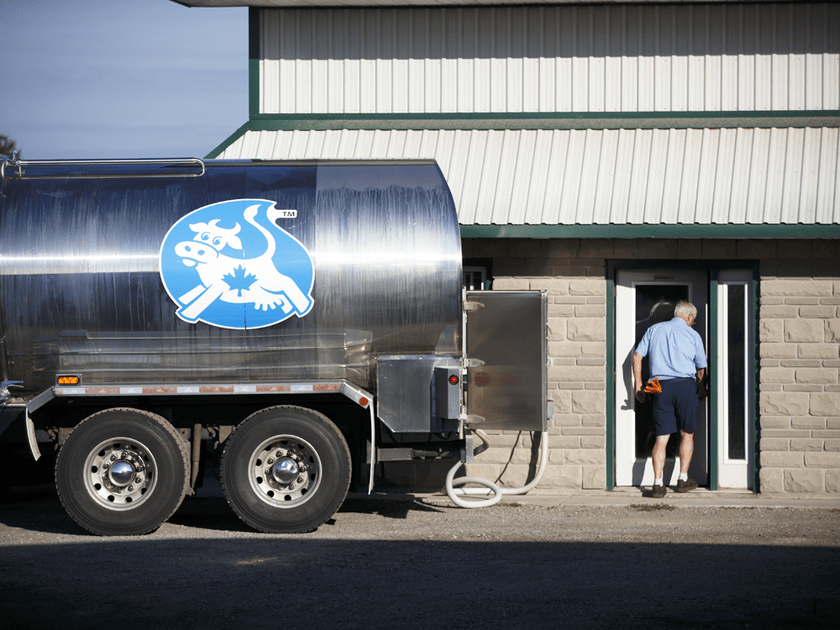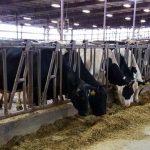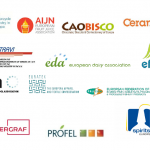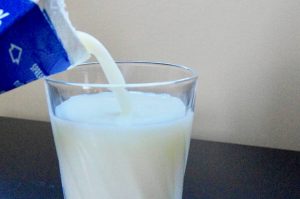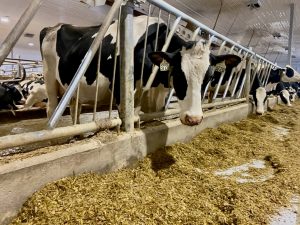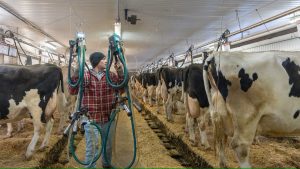
Canada needs to make major changes to its dairy supply management system to help the industry combat declining milk consumption and the incursion of more foreign dairy products through free trade agreements, according to a new report.
The report, released on Thursday by a group of agri-food researchers at Dalhousie University and the University of Guelph, argues that supply management has held back innovation in the dairy sector by providing a steady price and relieving the pressure to respond to shifting consumer habits and industry trends.
Both the number of dairy farms in Canada and sales of fluid milk have been steadily declining for decades, the report notes, and the dairy farming sector could contract by as much as half in the next decade, to roughly 5,500 farms.
“We can actually grow the dairy sector, instead of just managing its decline,” said Sylvain Charlebois, the director of Dalhousie’s Agri-Food Analytics Lab, who co-authored the report with Dalhousie research associate Jean-Luc Lemieux and Simon Somogyi, who holds the University of Guelph’s Arrell Chair in the Business of Food.
To grow the sector, the report is calling for a 20-year plan to establish “Supply Management 2.0” by slowly reducing tariffs and opening up the domestic dairy market to more imports, while also voluntarily buying out struggling farmers and building up an international brand for Canadian dairy to give the strongest operators a bigger market for their products.
But Charlebois said they are not advocating for an end to supply management, a divisive system used in the dairy, egg and poultry sectors to control the domestic output and price of a commodity while limiting the amount of imports allowed into the market.
Proponents of that system argue it protects farmers from dramatic price fluctuations, while allowing for a steady supply of safe milk. Opponents note the system has also led to higher prices, compared to markets such as the United States, while also hampering Canada in free trade negotiations.
“Dismantling supply management is not a viable solution currently,” the report said. “If trade were liberalized tomorrow, cheaper American milk would likely flood the Canadian market, our farmers would not be able to compete, and eventually the entire dairy industry would be dependent on imported milk.”
Dismantling supply management is not a viable solution currentlyDairy supply management report
But the Dairy Farmers of Canada, the main industry association, called Charlebois’ recommendations “theoretical” and “hard to reconcile” with the existing environment.
“After being one of supply management’s staunchest opponents, Mr. Charlebois now admits there is value in this model, including for consumers,” Jacques Lefebvre, the association’s chief executive, said in an emailed statement provided by the organization’s spokesperson.
Charlebois said he has been critical of the supply management system, but hasn’t advocated for its demise.
“It’s important that we talk about the future,” he said.
Canada’s recent free trade agreements — including the Canada-European Union’s Comprehensive Economic and Trade Agreement (CETA) and the Comprehensive and Progressive Agreement for Trans-Pacific Partnership (CPTPP) — will collectively open up about eight per cent of the dairy market to international exporters, according to the report.
To compensate, the federal government has pledged $1.75 billion in support for farmers over eight years, with more support promised following the ratification of the Canada-United States-Mexico Agreement (CUSMA).
But the funding only amounts to “a Band-Aid on a wound that needs sutures,” the report said. “The reality is unpleasant for farmers and, unfortunately, if we are to act appropriately, some farmers will have to exit the industry to make room for new foreign competitors.”
The report’s authors recommend the government offer a voluntary buyback program that would compensate farmers for their dairy quota and provide an off-ramp for those struggling to turn a profit. The report also calls for reforms to the Canadian Dairy Commission, specifically to make the governing body’s decisions on setting dairy quotas and prices more transparent and focused on processors and retailers, not just farmers.
To boost innovation in the sector, the report suggests significantly reducing barriers to interprovincial trade to give upstart regional operations offering innovative or niche products access to a broader market to sell their wares. Currently, dairy production is heavily consolidated in Ontario and Quebec.
“A dairy farm and a processor who want to come together to produce an artisanal cultured grass-fed butter that they can then sell into specialty grocery stores … it’s extremely complicated for them to do that,” Simon Somogyi, the report’s co-author, said.
The report also calls for a gradual reduction in protectionist measures, opening up the Canadian market to imports while also allowing domestic producers to have more access to international markets. More export opportunities, the report argues, would give more reason for dairy farmers and producers to innovate.
“It’s very difficult to support a (research and development) agenda when you only have 38 million mouths to feed,” Charlebois said.
But the Dairy Farmers of Canada said the call to expand exports for Canadian dairy products “ignores the fact that the federal government has imposed the equivalent of worldwide caps on exports of key Canadian dairy products in response to U.S. demands in CUSMA.”
